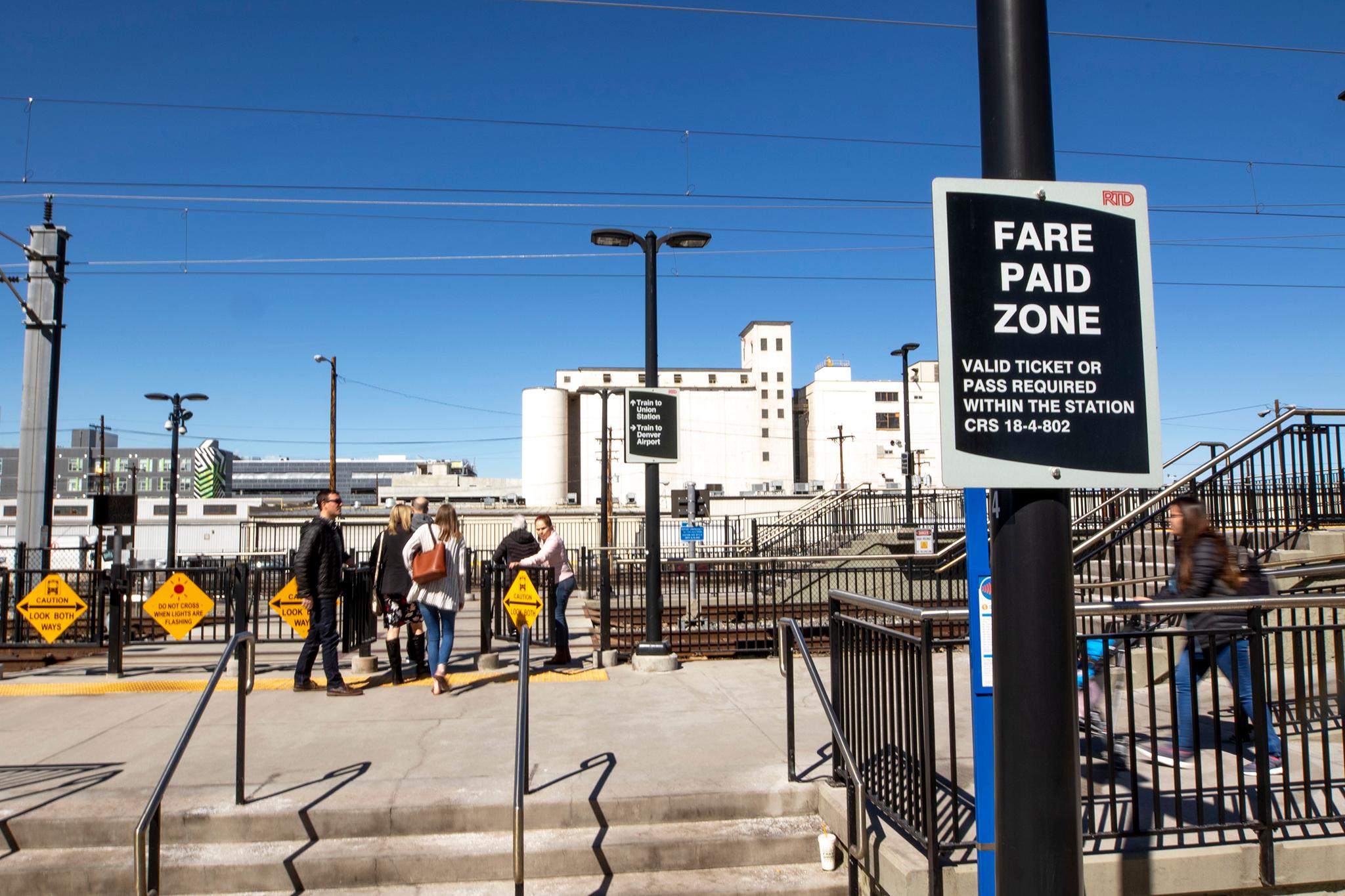Denver's transit agency uses a nonexistent law to shoo people from its train stations.
Signs at stations throughout the Regional Transportation District's network have long claimed that people can only enter the "fare paid zone" with a "valid ticket or pass." Problem is, there's no such thing as a fare paid zone. The Colorado statute referenced on the sign, 18-4-802, was repealed in 2012.
The deceptive signs are posted at stations all over the system, including ones that opened long after the law was repealed, like 38th and Blake and Central Park, which opened in 2016.
"It was a safety decision that was more about making sure that the space is used for its intended purpose, which is transit use," Pauletta Tonilas, RTD's assistant general manager of communications, said in an interview. She called the out-of-date signs a "miscommunication" and said crews have begun taking them down.
Tonilas admitted the signs should be removed but defended their original intent.
"When you're dealing with the human element, obviously there can be intimidating behavior. There has been over the years, people who've intimidated other people, who use panhandling," Tonilas said. "As a daily transit rider, at night sometimes getting off the train and having to walk to my car at the park-and-ride can be very intimidating with people who are around the space, just hanging out, not intending to get on a bus or a train and it's intimidating to people."
Though RTD maintains that the "fare paid zone" was not enforced, four attempts to cite people under the bunk statute were made after it was repealed, according to county court records. All four cases were from 2013.
RTD staffers do not know exactly how many signs exist or where they are despite "an informal audit," a spokesperson told Denverite.
State legislators repealed the law because people were getting caught up in the criminal justice system for something they believed should not have been a crime.
Former Representative Dan Pabon co-sponsored the law's repeal with State Senator Lucia Guzman. Sitting at a station without a fare previously earned some people arrests and misdemeanors.
"They'd spend the night in jail and the judge would look at the violation and basically say, 'Time served' and bang the gavel," Pabon told Denverite. "And that seemed like an absurd thing."
The law was also costing taxpayers money by forcing people into the criminal justice system, he said.
"The juice isn't worth the squeeze," Pabon said.
According to an ethics expert, it's not cool to post signs suggesting people can be arrested for being in a public place without a fare when they can't be arrested for being in a public place without a fare.
RTD has a complicated relationship with public space. The taxpayer-owned transit agency run by elected officials owns Union Station, but it also signed away its rights to the Great Hall in 2012, the same year the fare zone statute was repealed. Now private companies say what -- and who -- goes.
There's nothing complicated about using a nonexistent law to deter people from entering a train station, said Michael Henry, the former head of the Denver Board of Ethics.
"Any government personnel or agencies should have an obligation to be up to date on which laws or regulations are in effect and to enforce them appropriately," Henry said.
Henry said that "there's something wrong here" but said the ethics of it depend on whether someone knowingly added obsolete signs to RTD's stations.
No one Denverite spoke to could say for sure how it happened, but Tonilas said it was likely an oversight. So did RTD Board Chair Angie Rivera Malpiede.
"I think they just spaced out," she said.












